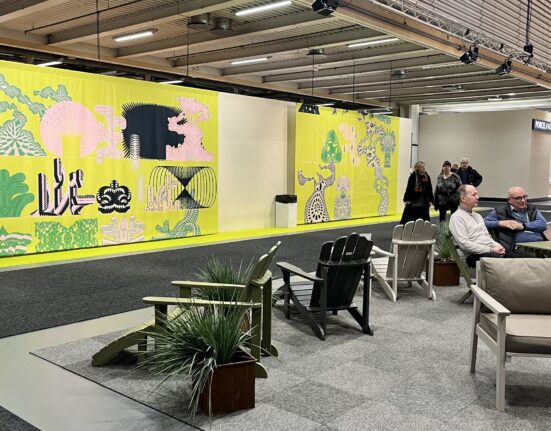Ever feel like the sore thumb in Sweden? This week, YLC’s mental health expert, Lysanne Sizoo, discusses the difficulties associated with simultaneously adjusting to another culture and a new work environment abroad.
 Photo: Lena Granefelt/imagebank.sweden.se
Photo: Lena Granefelt/imagebank.sweden.se
So you’ve found a job in Sweden, made the move, and started work. Grattis! If everything is going swimmingly, then you’ve cracked the first few numbers of the cultural code. If not, you may be suffering from double culture shock.
Almost everyone feels anxious when starting a new job. We wonder whether we’ll be liked and if we’ll be able to handle the responsibilities and workload. On top of these normal anxieties, we are in a foreign country, struggling to learn a new language (as Swedish is often a requirement in the country’s workplace). Sometimes we have elevated expectations of the time it takes to be relatively fluent, and other times we bend the truth at the job interview, hoping for the best. But, six months down the line, there’s one thing we don’t often prepare ourselves for: the clash between remaining true to your own culture and adjusting to the new, working environment and the country’s culture.
Company vs. Country Culture
Research from Randstad, the second largest HR company in the world, shows that more than two thirds of adult employees recognize the importance of adapting to their company’s environment in order to succeed in the organisation. But, when you’re working in a Swedish environment, it’s not always easy to see where the separation lies between company culture and the Swedish culture. So my advice would be to allow yourself time to sort out the ‘rules of engagement’ and get plenty of rest, because your mind is working overtime trying constantly to listen and observe.
Even if you’re working for a company that represents your own culture (like in an embassy or school), don’t expect things to be the same as they are at home.
Relating with co-workers is an important step in this process, but, in your enthusiasm to please, you may not notice how your own cultural conditioning on ‘getting to know people’ doesn’t fit in. “I came from New York with a very American ‘shooting the breeze’ kind of approach when I first started working here”, relates one of my friends, “but I seemed to meet a lot of resistance, and after a few months I was told that this is not how things are done in Sweden.”
One oft-heard piece of advice from recruitment companies is to ask a lot of questions. However, where in some cultures this would be seen as positive, curious and willing to learn, in others it may be interpreted as not being able to cope. If it’s the latter, you may find yourself being pushed from pillar to post, because no one wants to give you a clear answer and take responsibility for perhaps getting it wrong. So ask for help for the right reasons, because in the end, new culture or not, it’s always better to admit when we’re in over our heads.
At the same time, don’t be afraid to announce the fact that you are a newcomer and a foreigner and that you will be found putting your foot in it occasionally. If you can laugh about it, others will too.
I’ve frequently heard clients reflect with regret on the fact that new colleagues aren’t always forthcoming in including them in their lunches or after work engagements. Others hoped that they would have help settling in, but have instead been left to their own devices. If these colleagues are Swedish, they might just be reluctant to intrude on your privacy; it might not be that they’re not inviting YOU as a person, they’re just letting time do the hard work for them and suddenly one day you’ll find yourself heading out of the door with them at lunchtime, without any explicit invitations ever being issued. On the other hand, If your colleagues have a mixed cultural background, they may just be curious to wait and see how you fit in to the international melting pot.
Timing is Everything
Just as new boyfriends or girlfriends don’t want to be compared to the previous models, neither do new colleagues and managers. If they are local to the host country they especially will not appreciate being told how things are done in your previous company or country. Of course, it’s natural for us to compare one with the other, but save your research results for discussions with those who sympathise and concur, or when asked for an assessment by your managers.
First impressions often only tell us something about the superficial layer of the new culture, so it’s probably wise to wait a few months before judging your new situation too harshly.
National recruiters generally advise clients to expect things to be tough for the first three months. With international recruitment, I would extend that to anywhere from six months to a year.
What we see when we coach international employees at Turning Point is that the first glimmers of a potential conflict between the ‘old me’ and the ‘new me’ begin to appear six to twelve months after the first day of work. Again, you have probably been fighting the culture shock on a private and corporate front, so you have been taking on a lot of messages about how to behave in order to be accepted.
There has also been time for the realisation to sink in that you are not on holiday, and that the way you used to do things may not work in your new environment. We miss the ‘mirrors’ from home that tell us who were are and how to act. But at the same time, our new mirrors show us a different side of ourselves and present us with the opportunity to grow. However, what often happens is that we end up giving ourselves an ultimatum: either I learn to become reticent or I have to leave, because that’s just not ‘me’.
As I wrote in the article on changing identities abroad, the challenge is not to become a different you, but to become more of you. My friend says “I now know that I can be both ‘American’ in my way of meeting clients and colleagues, and be proud of that, but I also know when to melt into the background and be more ‘Swedish’”.
“I am freer to be who I am, because I adjust, not to please others, but to help me perform better. The choice is mine.”
So the moral of the story is to enjoy the adventure of your new international workplace. Don’t be too eager to have it all together within the first few weeks, try to distinguish between the new culture in and outside of your new workplace, and sit on your comparisons for a while until you’ve seen the underlying motivations behind surface behaviour. Most importantly, though, is that you don’t lose who you are in the process; see your new situation as an opportunity to let go of parts of yourself that are no longer useful, and to embrace the new parts your host culture has helped find.
Copyright 2013: Lysanne Sizoo
Lysanne Sizoo
DISCLAIMER
These articles are a composite of my personal, my colleagues’ and
clients’ experiences in order to protect recognition. All therapeutic
meetings are Turning Point are confidential, and specific content would
never be shared in a public forum.
If you have any specific problem that you would like Lysanne to consider in her articles, please contact her here (anonymity will always be preserved).
Lysanne Sizoo is the founder and director of Turning Point, the only international counselling centre in Stockholm. In 2008 she obtained her psychotherapy license from the United Kingdom Council for Psychotherapy. She has been practising as a counsellor and psychotherapist since 1997, specialising in the field of cross cultural issues, as well as fertility, bereavement, parenting, anxiety and stress management.












